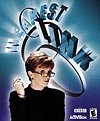Goatseye said:
greenmedic88 said:
By a show of hands here, who actually has an armed forces service record?
Clearly we have some pretty strong opinions here, but I'm a lot more likely to push those opinions belonging to those who don't have any firsthand experience to the back of the line, if not gloss over them entirely.
The front half of my service was largely in integrated/coed units, from BCT to AIT, Airborne school, my first two assignments, etc. so I have a better grasp of what this entails on a practical, functional level than any armchair soldiers or pseudo academics.
I'm going to withhold my personal opinions here until I hear something relevant and intelligent.
We could probably start with the two sets of physical standards for men and women service members as far as the differences go to say nothing of the different mindsets or other differences between men and women.
In favor of the coed units, I would probably look first to the IDF. If we have any women or men who have served in the IDF, I would highly value their opinions and impressions in this discussion.
|
You wrote 5 paragraphs just to say that we're not qualified to chime in on the topic at hand. At least leave your professional opinion, to add to the convo, maybe we could learn something.
|
Looks like no one then. I know there are a handful of prior service guys in VGC.
He claimed only "a very small number" of women wanted to join the infantry, and that only "a fraction" of those would have the physical capability to do so.
Col Kemp was former British Army. I'm former US Army so I can't comment on British servicewomen, but his above statement applies to the US Army as well.
There are two sets of physical standards for the APFT, the basic assessment of fitness that is far from comprehensive, but enough for a set of standards that can exclude individuals from certain specialties if they fall below the minimum.
For certain military occupational specialties, including combat arms specialties like infantry, a single non-gender specific set of standards would start everyone on neutral ground. No separate/lower standards for women as is the case for combat support and combat services specialties. Ruck weight standards for timed marches would also be the same (this is already 18th Airborne Corps standard).
Additionally, for special operations specialties (US Army Rangers, US Army Special Forces, etc.), age standards during qualification phases are typically thrown out as well so that everyone must perform for the peak standards of the 27-31 year old men for strength and endurance events and 22-26 year old men for run times with no regard for age. The number of women in special operations units is currently all but non-existent, which could change if they were allowed into these SOF MOSs after meeting the standards and passing the selection process. Recently US Army servicewomen were allowed to go to Ranger School for their Ranger qualification (not a Military Occupational Specialty, but a qualification; one could be a Ranger qualfied cook if they successfully completed Ranger school) and the number of Ranger qualified servicewomen is currently still in the single digits last I checked. That's Army wide.
With these non-gender specific physical standards, the pool of qualified servicewomen would be small, before even completing occupation specialty training to standard, as there is a pretty wide discrepancy between APFT standards for male and female servicemembers. The reality is that the number of qualified servicewomen would be small, but would represent the best of their peers.
If they can meet all the standards, at that point I'd leave it up to individual units and unit commanders. I know most infantry units probably would not be incredibly receptive among the rank and file and if there was any perception that members were being introduced into combat units as a part of some political statement, it would make things worse for these women. There would have to be the perception that any women in combat units were as qualified anyone else, with no special consideration given with regard to standards or performance.

























































